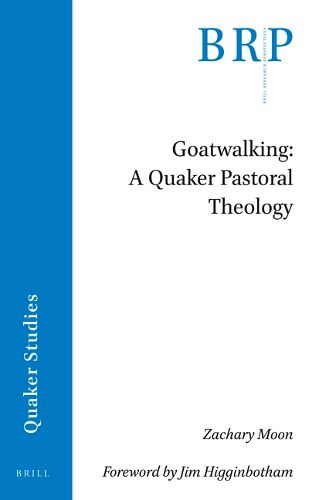Readings Newsletter
Become a Readings Member to make your shopping experience even easier.
Sign in or sign up for free!
You’re not far away from qualifying for FREE standard shipping within Australia
You’ve qualified for FREE standard shipping within Australia
The cart is loading…






Zachary Moon explores the rich traditions of the Religious Society of Friends (Quakers) in relationship to the field of pastoral theology. Firstly, he explores the significance of metaphor in influencing the pastoral theological imagination. This includes revisiting Seward Hiltner’s classic ‘shepherding perspective.’ Moon secondly utilizes the works of Jim Corbett in animating an alternative pastoral metaphor and claims a ‘goatwalking perspective.’ Finally, he broadly traverses the terrain of Quaker traditions, particularly those practices that pertain to compassionate care and support of spiritual wellbeing, acknowledging that the concepts of ‘pastoral theology’ and ‘pastoral care’ are largely unfamiliar within Quaker theological understanding yet asserting that Quaker traditions provide resources that aid broader pastoral theological discourse and support the healthy living out of Quaker faith in community.
In a foreword, Jim Higginbotham explores a complementary metaphor of sanctuary for pastoral theology. Inspired by Corbett’s role as one of the founders of the Sanctuary Movement, sanctuary is understood as a sacred liminal space of radical hospitality connecting the pastoral and prophetic.
$9.00 standard shipping within Australia
FREE standard shipping within Australia for orders over $100.00
Express & International shipping calculated at checkout
Zachary Moon explores the rich traditions of the Religious Society of Friends (Quakers) in relationship to the field of pastoral theology. Firstly, he explores the significance of metaphor in influencing the pastoral theological imagination. This includes revisiting Seward Hiltner’s classic ‘shepherding perspective.’ Moon secondly utilizes the works of Jim Corbett in animating an alternative pastoral metaphor and claims a ‘goatwalking perspective.’ Finally, he broadly traverses the terrain of Quaker traditions, particularly those practices that pertain to compassionate care and support of spiritual wellbeing, acknowledging that the concepts of ‘pastoral theology’ and ‘pastoral care’ are largely unfamiliar within Quaker theological understanding yet asserting that Quaker traditions provide resources that aid broader pastoral theological discourse and support the healthy living out of Quaker faith in community.
In a foreword, Jim Higginbotham explores a complementary metaphor of sanctuary for pastoral theology. Inspired by Corbett’s role as one of the founders of the Sanctuary Movement, sanctuary is understood as a sacred liminal space of radical hospitality connecting the pastoral and prophetic.